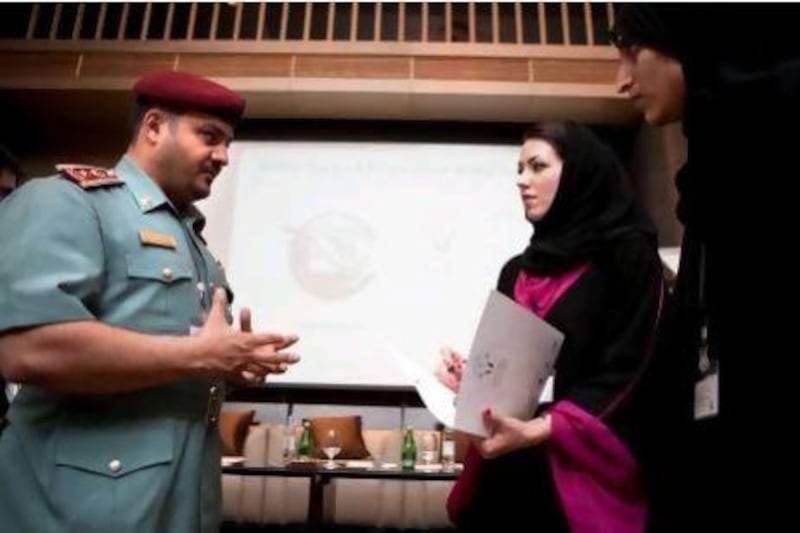DUBAI// Cultural diversity can make it difficult to protect children from abuse, experts said at a discussion forum on the issue.
The problems can stem from different views on corporal punishment, from concepts of family honour and from a perceived stigma that leads many people to blame the victims of abuse, the panel heard.
"Child abuse is a challenge everywhere, but the cultural diversity in the UAE is adding to the challenge,"said Sanjana Bhardwaj, an instructor at Zayed University and a child protection consultant.
Conflicting ideas about parenting create legislative and social hurdles, she said.
"Physical abuse by parents, for instance. For some parents, hitting is a way of discipline. And when it becomes abuse, there's a very, very thin line."
Nevertheless, diversity is not a reason for failing to act on the issue, other experts said. "When we talk about cultural differences, we sometimes make excuses," said Jonathan McAuley, a strategic adviser to Abu Dhabi Police.
"Those are not excuses for covering up physical abuse or sexual abuse."
Obstacles such as shame about sexual assault are not unique to the UAE, he said.
"It is a matter of standing up and addressing it in a culture, and not using culture and cultural explanations as reasons for making excuses about why we're not acting."
One member of the audience said the importance of family honour can prevent parents from reporting abuse to the police.
"Parents, because of the perception of the family name, they won't report…" said Manal Huwair, 25, from Dubai, mother of a two-year-old boy. "They try to cover it up and solve it themselves."
The stigma associated with abuse can also lead people to blame the victim, said Lt Col Faisal Mohammed Al Shamari, director of the Ministry of Interior's Child Protection Centre.
"It's not on the victim," he said. "It's on everyone."
There is no federal child protection system, but both the Ministry of Social Affairs and the Ministry of Interior's Higher Committee for Child Protection have drafted legislation that addresses child abuse.
The federal Cabinet is keen to create a nationwide effort, Lt Col Al Shamari said.
The forum also discussed cyber abuse, maids raising children and how parents should talk to children about abuse.
Ms Huwair has researched child abuse online but came to the forum to learn more. "Of course you worry about it, especially in our community," she said. "We're a diverse culture. You worry about the workers in your house, schoolteachers, families, children's friends, parents."
Children are most often abused by someone they know and trust, said Samia Kazi, chief operating officer of Arabian Child, the early childhood consultancy who organised Saturday's discussion along with Emiratweet, a social media community.
"It's very shocking as parents," she said. "We have to think about sleepovers at cousin's houses and at relatives."
To protect children, parents must talk about the issue, Ms Kazi said. "This kind of discussion that you're going to have, it's ongoing. It's not a one-time thing, and prevention is the best protection."
Many abuse victims have low self-worth, said audience member Iman Ben Chaibah, 27, from Dubai. "They believe they don't deserve that much. I know many friends who have been abused."
Parents should cultivate self-esteem in children, Ms Kazi said. "It's important that the children feel that they're valuable inside and outside of their homes, and they have a right to be safe… They'll be more inclined to say, 'No, this is my body'."
She also urged parents to keep the promises they make to their children. "They're not going to share a concern with you unless they feel that they can trust you."






